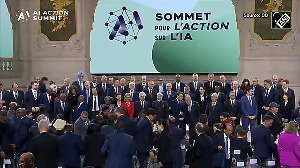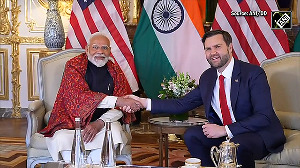India was willing to accept the proposals on tariff reduction for industrial goods as a trade-off for protection of its interests in agriculture at the recently held Geneva meeting of the WTO.
While Indian negotiators had some reservations that developing countries were being asked to do more than the developed nations, they were willing to accept the proposals as a basis provided India's 'concerns in other areas, especially agriculture were fully addressed', a highly-placed source said.
Of the three options on the table, India was likely to agree for a coefficient of 22, which would have required it to reduce tariff on industrial products by about 60 per cent.
Under this proposal, India would have been able to shield its products to the extent of 10 per cent.
Ministers from over 30 countries failed to reach an agreement even after nine days of intensive negotiations at the WTO headquarters last month. Talks had collapsed on the issue of the trigger for developing countries to safeguard their farmers against surge in imports.
He said it was the 'depth of autonomous liberalisation' undertaken by India which provided adequate cushion for agreeing to the proposals on tariff cuts in industrial goods.
While EU wanted to restrict the flexibilities for developing countries, 'a via media was found' which did not effectively restrict India's ability to protect its sensitive sectors.
However, India took a tough position on the issue of deeper cuts, even up to zero, in certain sectors. While the initial mandate was for a voluntary participation in this area, the US pushed for making it mandatory.






 © 2025
© 2025